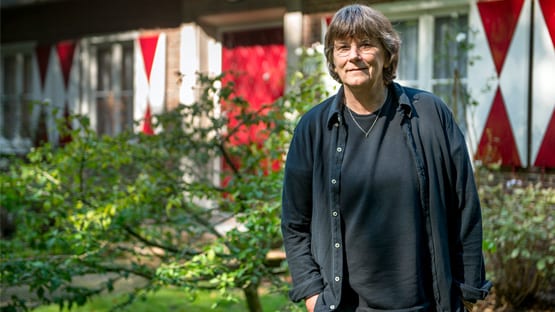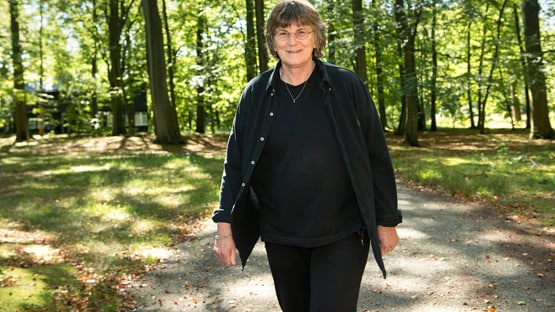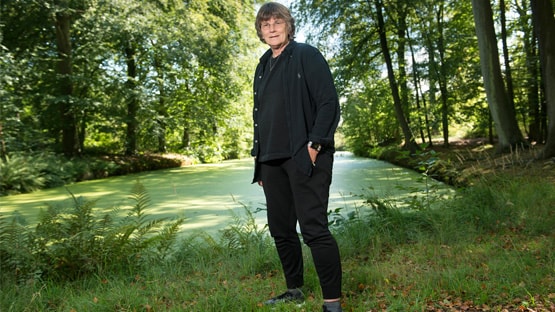Early this year, the Dutch government launched a national debate with the business community, civil-society parties and other authorities about the way the Netherlands aims to achieve its CO 2 targets. The debate is being conducted at “climate roundtables”. The Minister of Economic Affairs and Climate Policy, Eric Wiebes, has said that the energy transition which the Netherlands is facing in fact offers opportunities.
- But do those opportunities really exist? And will the energy transition really come about?
Coby van der Linde: “Nobody in the sector is in any doubt that the transition will actually take place, all the more so because some very interesting technologies are coming on stream that will make the transition possible from a market perspective. If it were solely because the Paris climate agreement demands it and if the economic possibilities were limited, then it would be a problem. But my own view is that you can get a lot done if you have the right incentives. It’s now up to the sector to provide solutions that will enable future energy demand to be met efficiently and that will contribute sufficiently to achieving the CO 2 reduction targets.”


- How can the sector achieve the energy transition?
“That’s still unclear. As long as the choices for certain technologies, conditions, and organisation of the market haven’t yet become entirely clear, it’s also difficult to develop appropriate business models. Without those models, it’s difficult for companies to lay out the roadmaps that are needed. I think that too little attention is being paid to this at the moment.”
- Where do you see a lack of clarity?
“Take the North Sea, for example. In the longer term, we can generate a great deal of electricity in the form of offshore wind energy, but we don’t yet know how to go about it. How do you get the electricity to the customer? Do you need to bring it ashore in the form of actual electricity or as hydrogen? And if it’s hydrogen, should energy companies convert it on the coast or should they do so close to where it’s produced out at sea, and if so, how? What’s allowable and what isn’t? And will it be enough? Perhaps it will be enough for domestic consumption, but not for industry."
"If we can’t meet the demand, we may need more sources. Perhaps we’ll need to utilise solar energy elsewhere in the world. If we consider the North Sea, then it’s also important to think about how we will exploit that area. Will we do so in the same way as we’ve done with oil and gas, through licensing? The present offshore wind farms are relatively small, in line with a start-up draft phase. But if we also want to meet industrial demand with a healthy revenue model, then they may need to be on a larger scale.”
- Who should take the lead in the debate on these issues?
“That’s a task for government The government needs to create the space for energy companies to draw up good revenue models. The climate roundtables offer a good platform for discussing that issue. There’s also discussion in the public domain via the media, but it isn’t always constructive. The subject then gets reduced to the question of whether or not we should cease using natural gas as our main energy source. And in that context, the discussion also focusses on affordability and on who should bear any costs involved. It then becomes clear that people have their doubts about the feasibility and affordability of the transition and what it means for the citizen. The debate gets hijacked and used for political aims. That’s not a good thing. It’s better to talk to one another about the steps that need to be taken now, and about how we’ll make use of the new possibilities and provide the necessary scope for them.”


- How can the energy sector prepare for the new reality?
“New technologies are coming on stream that will be well able to compete with those that we already have. Some of them have been thoroughly researched at the laboratory level, and experience has also been gained with them in certain sectors of the economy. What’s still often lacking is an understanding of the dimensions involved. What scale is necessary for a certain solution to be feasible from an economic perspective? Executives in the energy sector need to think hard about the longer term and to talk seriously to their strategy department. They should identify their assets position, knowhow, competencies and capital assets, and try to develop and integrate new processes based on the new technologies. Perhaps that means that the energy companies of the future will have a different presence within the value chain than is currently the case. The government’s role is to create the right preconditions. Is the way the market is currently organised an obstacle to change? If it is, then how will we deal with it? Is there perhaps a need for new legislation and regulations?”
- Is the national debate sufficiently focussed on these kinds of questions?
“In my view, it’s currently mainly about the goals, and the question of how to achieve those goals is not being addressed sufficiently. I think that the energy sector and the energy companies really need that to be clarified so they can move forward. I’m positive about the possibilities, but we need to work to remove obstacles so that the sector has the scope it needs to experiment and try out certain technologies on a larger scale.”


- What kind of obstacles should be removed?
“The current energy markets are at the end of their cycle; they’ve reached the limits of their development and they have a fixed structure and regulation. That works well in the current circumstances, but it’s an obstacle if we want to speed up the transition. Revenue models are now emerging in which companies organise the market themselves, i.e. ”vertical integration”, with the companies themselves shouldering the investment and the risks but also profiting from the benefits. Given the way the market is currently organised, that’s not possible. So that needs to be discussed. As long as the rules say ‘that’s not allowed’, then even if an energy company has some really excellent ideas, they can’t be put into practice.”
Contact us

Global Leader, P&U and EU&R, Partner, PwC Netherlands
Tel: +31 (0)65 160 91 78















